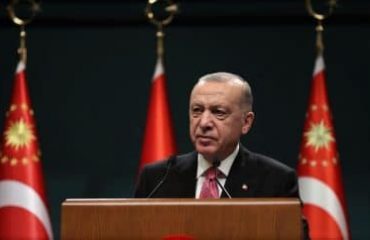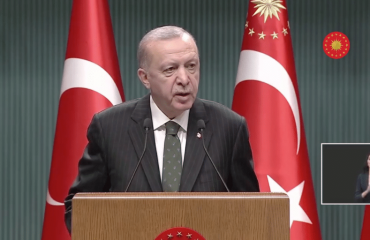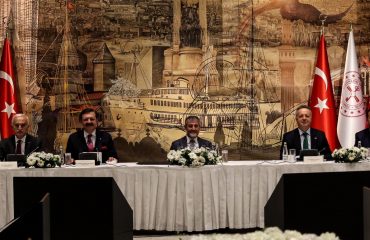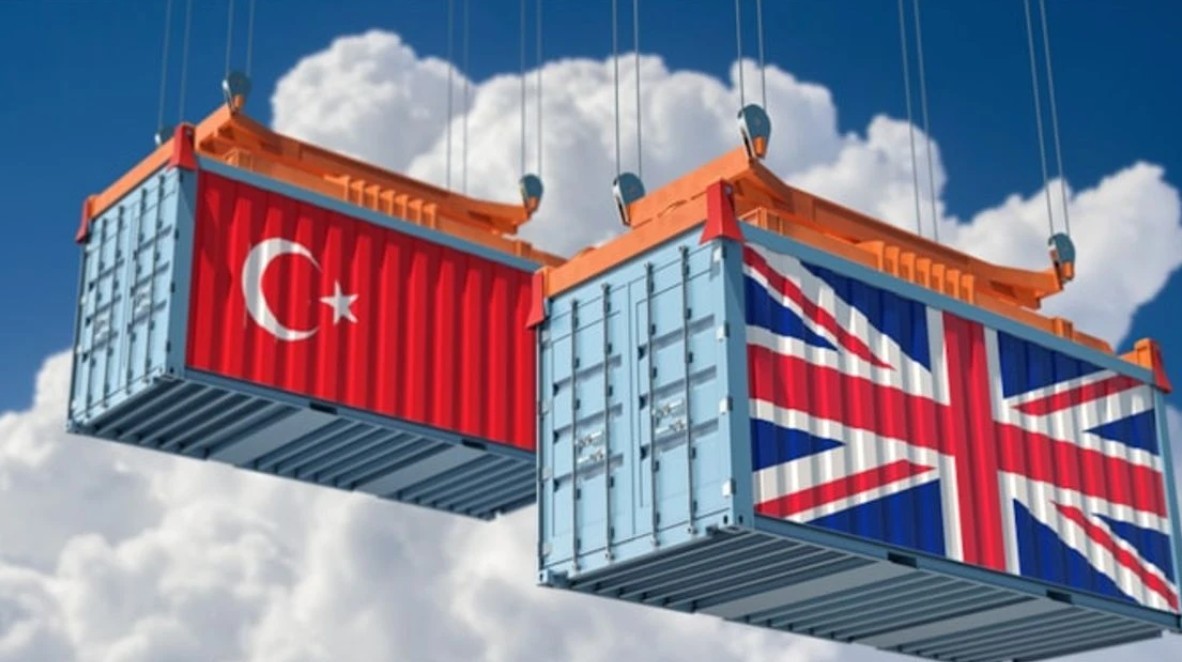
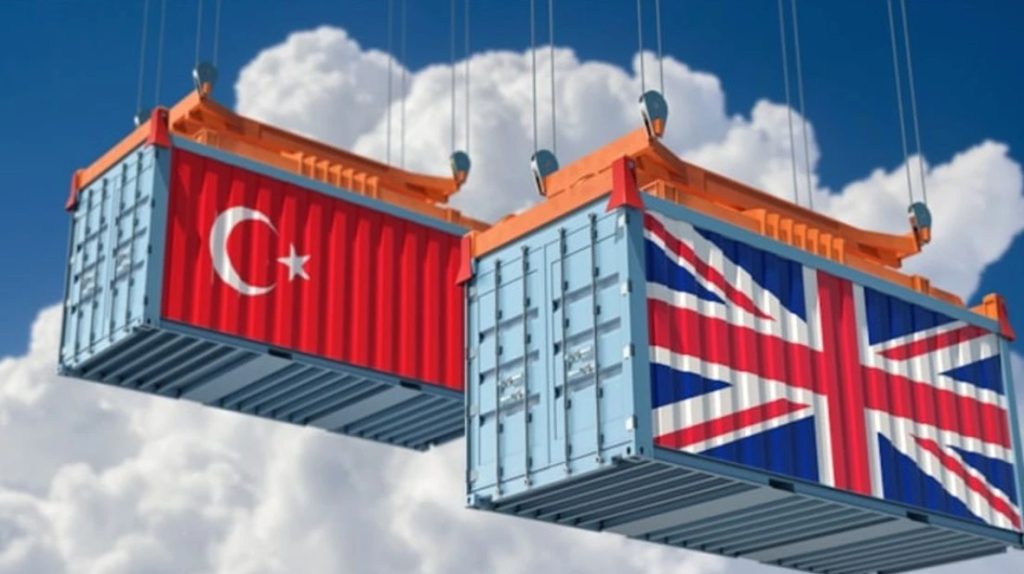
Turkish-UK economic relations are evolving into a free trade agreement following Brexit.
From the dissolution agreement concerning the PKK to shifting dynamics in Syria and ongoing Russia–Ukraine negotiations, Türkiye is currently navigating an intense period of political and diplomatic activity. Another significant process is set to begin in July: the negotiations for a revised Turkish-UK Free Trade Agreement. If managed effectively, these talks could present Türkiye with new and positive opportunities not only in the economic realm but also in the diplomatic and political spheres.
Post-Brexit Türkiye–UK relations
Trade relations between the United Kingdom and Türkiye have continued to grow steadily, even amid increasing global uncertainties. As of 2023, the bilateral trade volume reached USD 20.6 billion, marking a notable 8.4% increase compared to 2022. Turkey exported goods worth USD 13.2 billion to the UK, while imports from the UK totalled USD 7.4 billion. Key Turkish export items include automotive products (USD 3.5 billion), ready-to-wear garments and textiles (USD 2.1 billion), machinery and electrical equipment (USD 1.8 billion), and plastic goods. On the import side, chemicals, pharmaceuticals, aerospace products, and financial services dominate the trade flow.
The UK is also one of Türkiye’s most prominent partners in terms of foreign direct investment, consistently ranking among the top five source countries.
The interim Free Trade Agreement (FTA), signed in 2021 in the aftermath of Brexit, was limited in scope, covering only trade in goods and excluding strategic areas such as services and investments. To address this gap, negotiations for a comprehensive new FTA are scheduled to commence in July 2024. This forthcoming agreement aims to significantly deepen economic ties between the two countries.
At a time when global supply chains are being restructured and “nearshoring” along with trusted trade partnerships are gaining strategic prominence, the negotiation process offers Turkey not only an economic advantage but also a critical geostrategic opportunity.
Beyond trade: strategy at the core
In recent years, relations between the UK and Türkiye have become more dynamic than perhaps at any other point in their modern history. This renewed momentum can, in part, be attributed to a shift in British foreign policy priorities. Traditional European Union concerns, such as democracy and human rights, no longer constitute a primary determinant in London’s engagement with Ankara. Instead, the UK has adopted a more pragmatic, interest-driven approach toward Turkey.
The two countries are either developing joint strategic agendas or deliberately avoiding direct conflicts of interest in regions ranging from the Middle East and North Africa to the Balkans and even the Arctic. In the defence sector in particular, the UK has emerged as one of Turkey’s strongest supporters. Beyond the sale of platforms such as the Eurofighter, the UK also contributes as a co-producer within Turkey’s growing defence industry.
It could be argued that it is Ankara, rather than London, that stands to benefit more immediately from the upcoming free trade agreement. The negotiations offer Turkey an opportunity to solidify its emerging role as a “strategic third country” among global power centres. Thanks to its geographical positioning at the heart of a multipolar world, Turkey may be able to leverage the uncertainty following the 90-day suspension of tariffs between China and the United States. With the right strategy, Turkey could position itself as a pivotal bridge for trade between East and West.
Careful planning, however, is essential. The UK is likely to approach with caution any imports from China that could pose risks to its domestic markets or broader security concerns. In this context, Turkey may take on the responsibility of balancing these competing interests. In summary, amid ongoing trade wars, Turkey could assume the role of a “proxy” actor—one that brings both significant opportunities and potential risks.
Efforts beyond economics are required
If Türkiye manages this process swiftly and with a clear prioritization of its national interests, it stands to gain not only in economic terms but also in broader strategic dimensions. For instance, a new bilateral model developed along the Ankara–London axis could serve as a precedent for the long-stalled modernization of the EU–Turkey Customs Union, which has faced political and technical deadlocks for years. However, the key issue lies in how—and to what extent—Ankara is willing to utilize this strategic leverage.
Naturally, this is not a process that can be completed in the short term. Negotiations between Japan and the UK, for example, took nearly eight years. While Türkiye may be able to conclude talks in a shorter timeframe, certain internal structural challenges could complicate this goal.
One such challenge concerns the banking sector, which is a critical component in comprehensive trade agreements. The fact that Türkiye’s financial markets remain open to direct political intervention may raise serious concerns for London. Similarly, around food production, Turkey is known to struggle with meeting UK standards. Enhancing regulatory alignment in areas such as animal welfare, production conditions, and standardization will be necessary.
Moreover, it is foreseeable that some EU member states—such as Italy and Greece—may engage in counter-diplomacy in London to curb Türkiye’s growing market share. For this reason, while the economic authorities handle the technical negotiations, it is crucial that the Turkish Ministry of Foreign Affairs actively supports the process through backchannel diplomacy.
Equitable partnership in a new world
The UK and Türkiye, situated at opposite ends of Europe, are heirs to two ancient empires with the potential to reshape the geopolitical landscape of the continent. While Türkiye has yet to fully leverage its strategic capabilities, the UK is still undergoing a process of recalibration in the wake of the Brexit debacle. At the same time, the trajectory of key allies in Washington remains uncertain, and the European Union is increasingly perceived as an ineffective and marginal actor in global affairs.
Against this backdrop, the relationship to be forged along the London–Ankara axis should not be limited to a profit-driven cooperation model. Rather, it must be conceptualized as a multifaceted, future-oriented strategic partnership. There is scope to deepen ties in defence and military cooperation. As exemplified by the Eurofighter consortium, Türkiye should be engaged not merely as a buyer but as a co-producer and strategic stakeholder.
In addition, the sustainability of long-term, high-value projects, such as Small Modular Reactor (SMR) technologies, depends on the UK’s willingness to treat Turkey not as a mere testing ground or low-risk outsourcing destination, but as an equal partner. Building a partnership based on genuine mutual trust requires a model centred on technology transfer, joint production, and equitable benefit-sharing.
